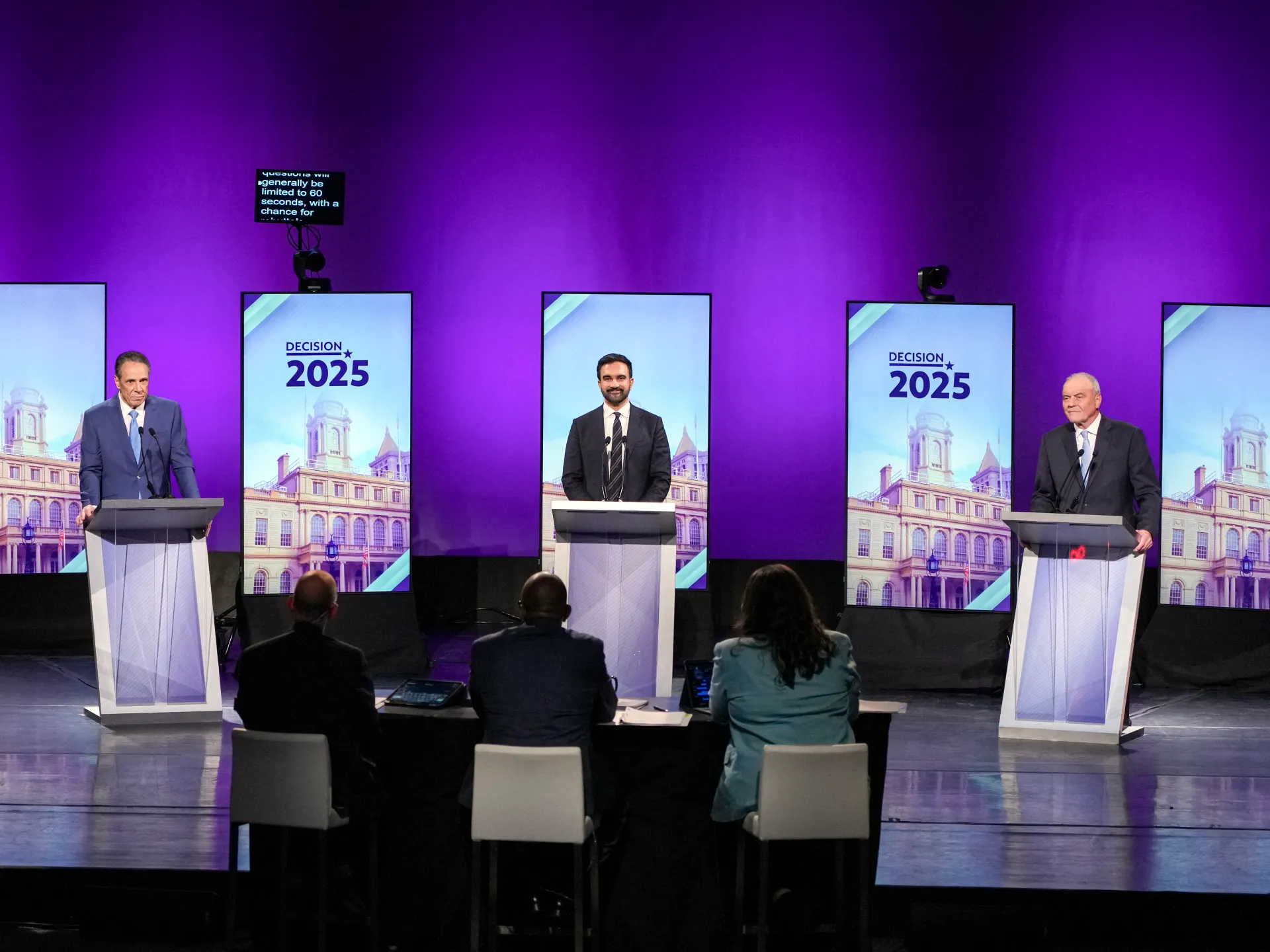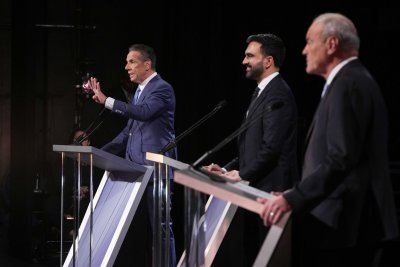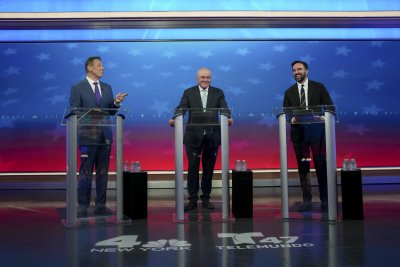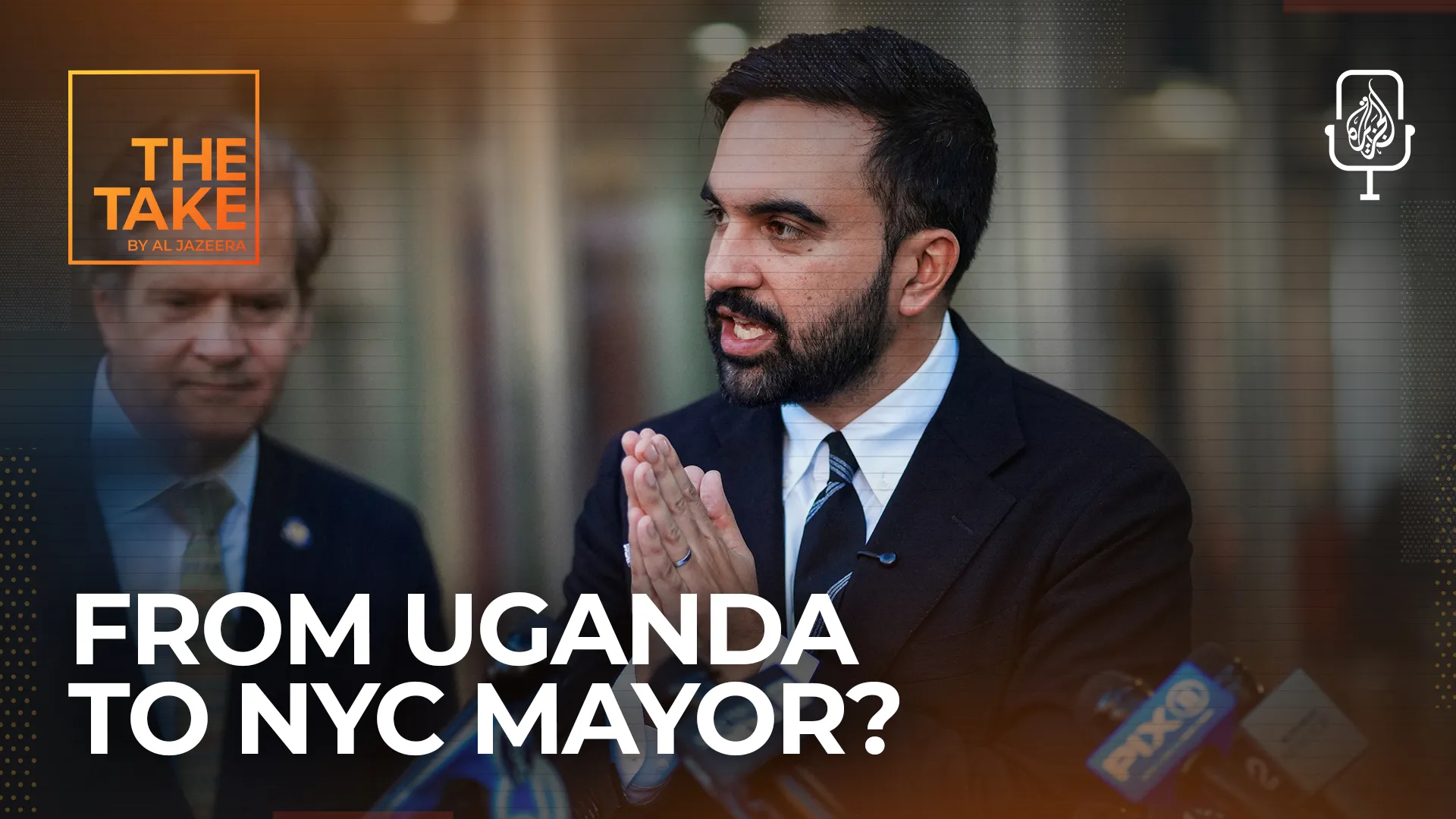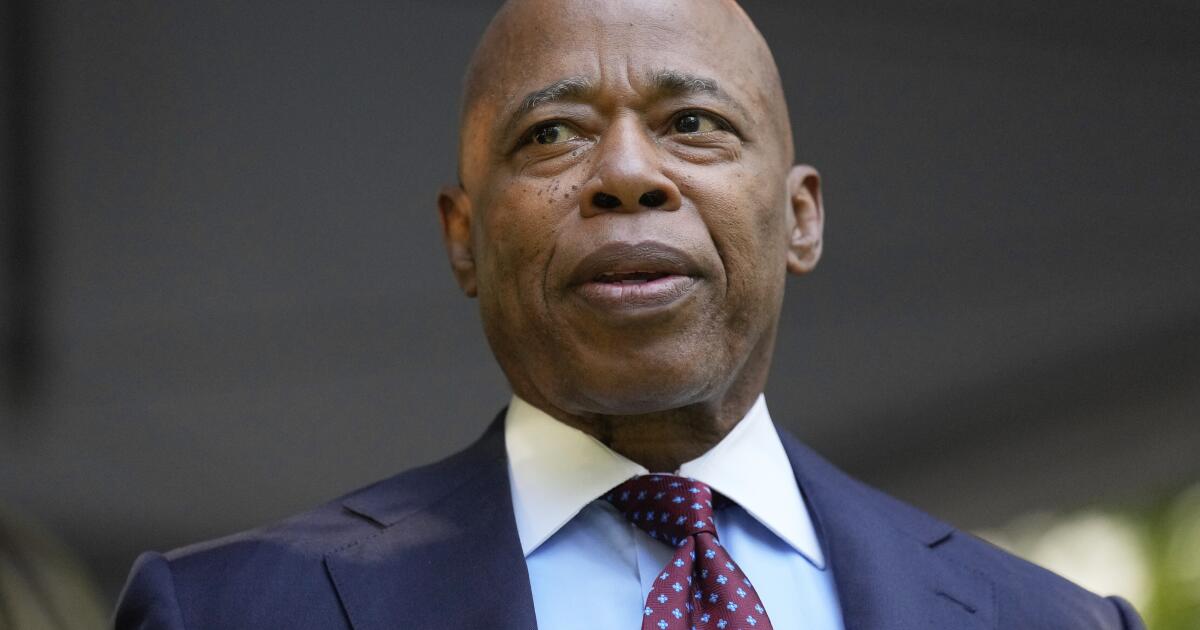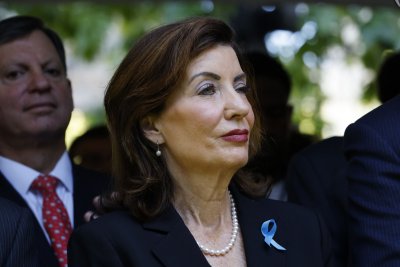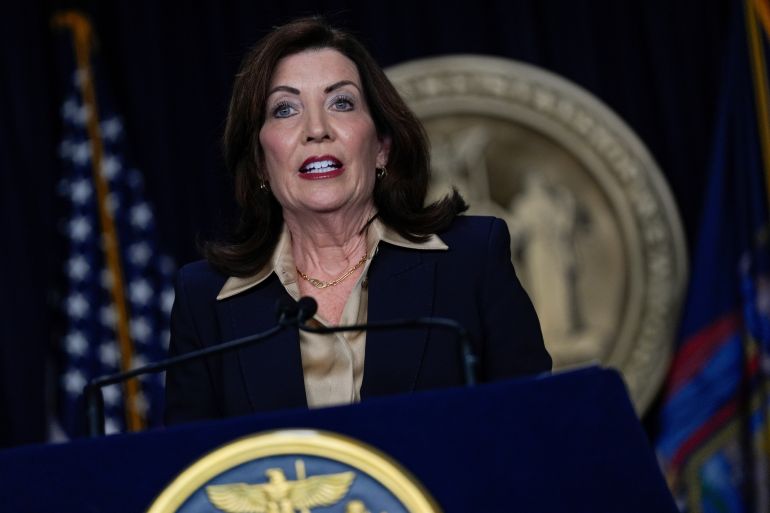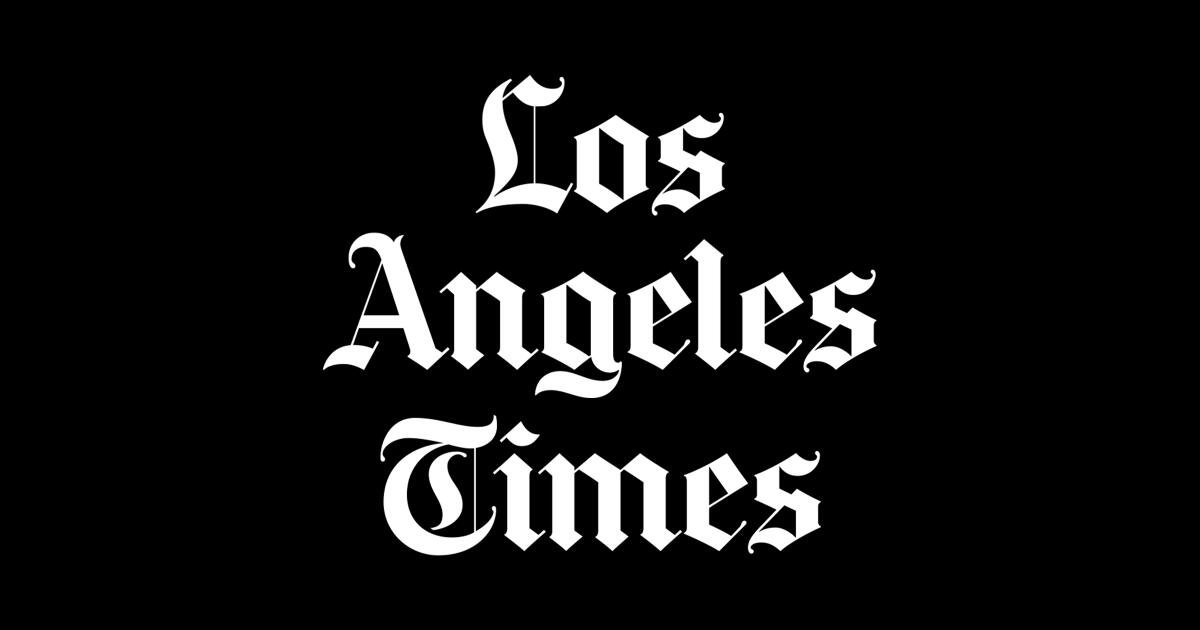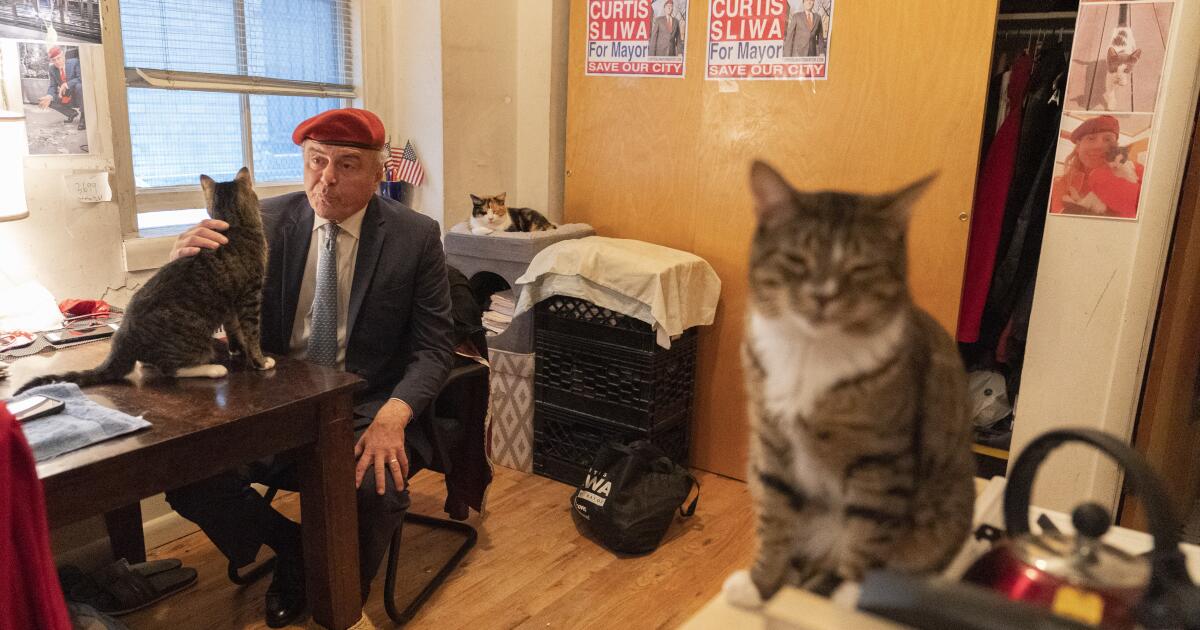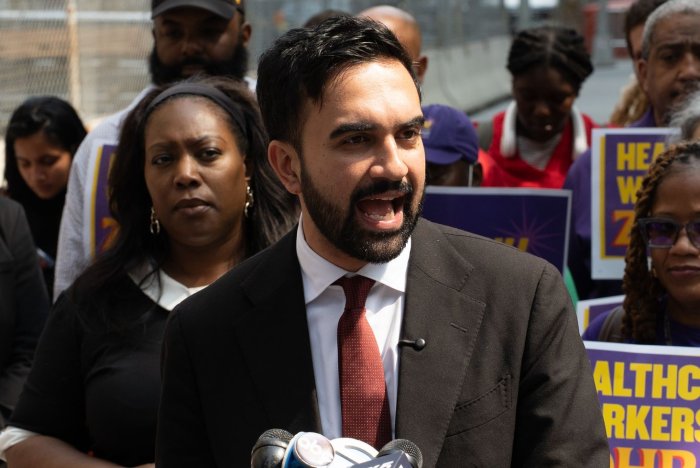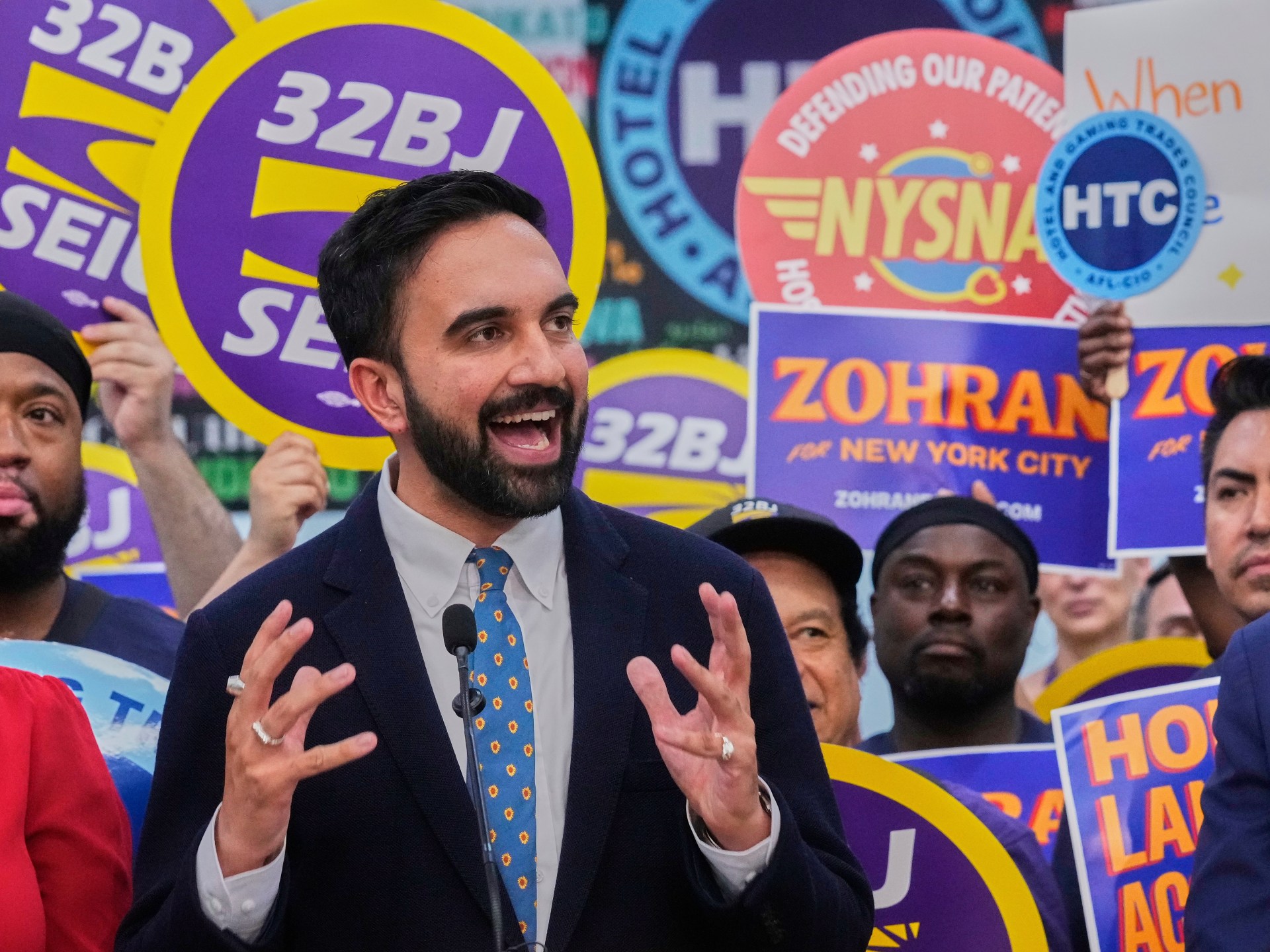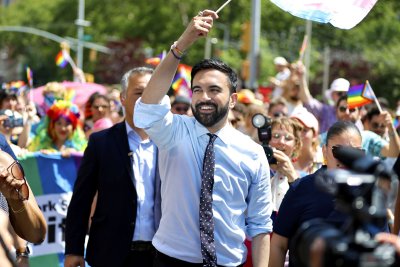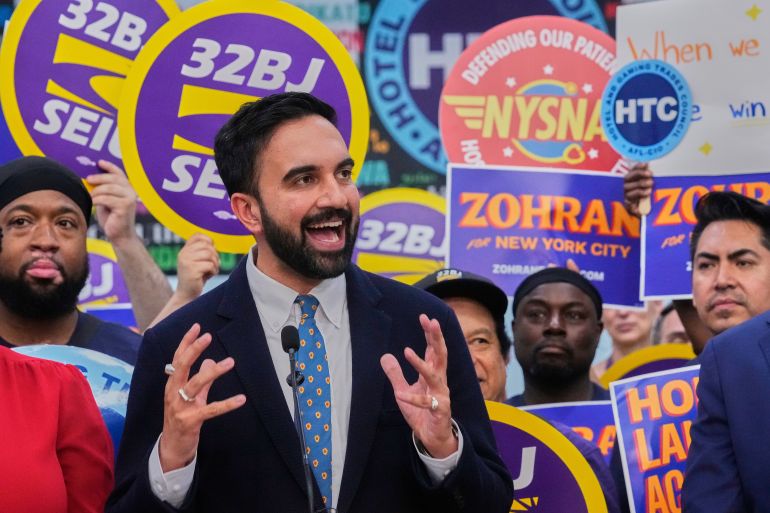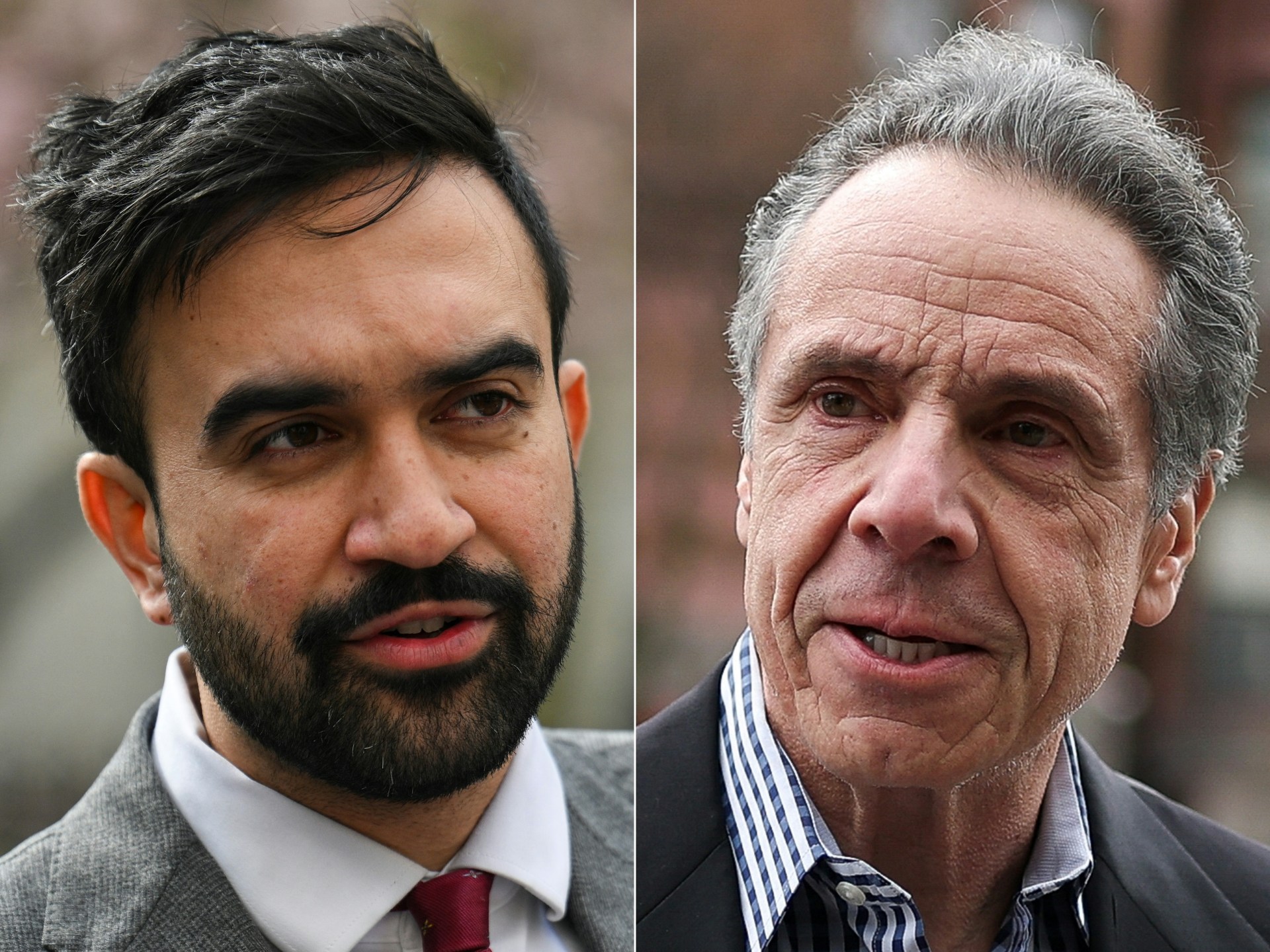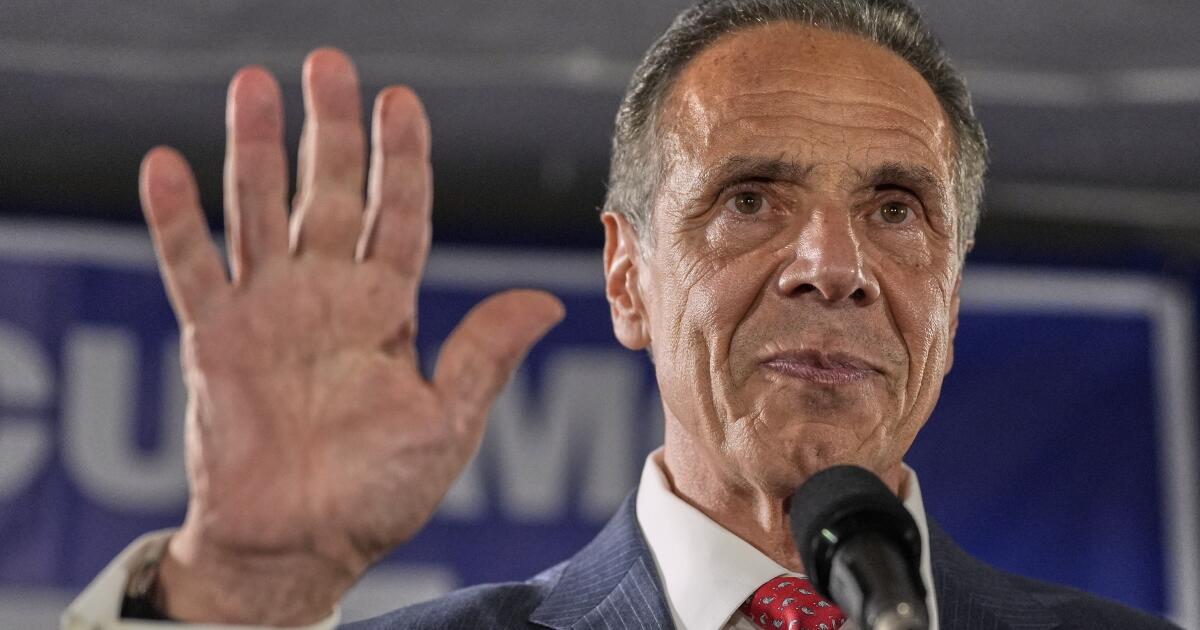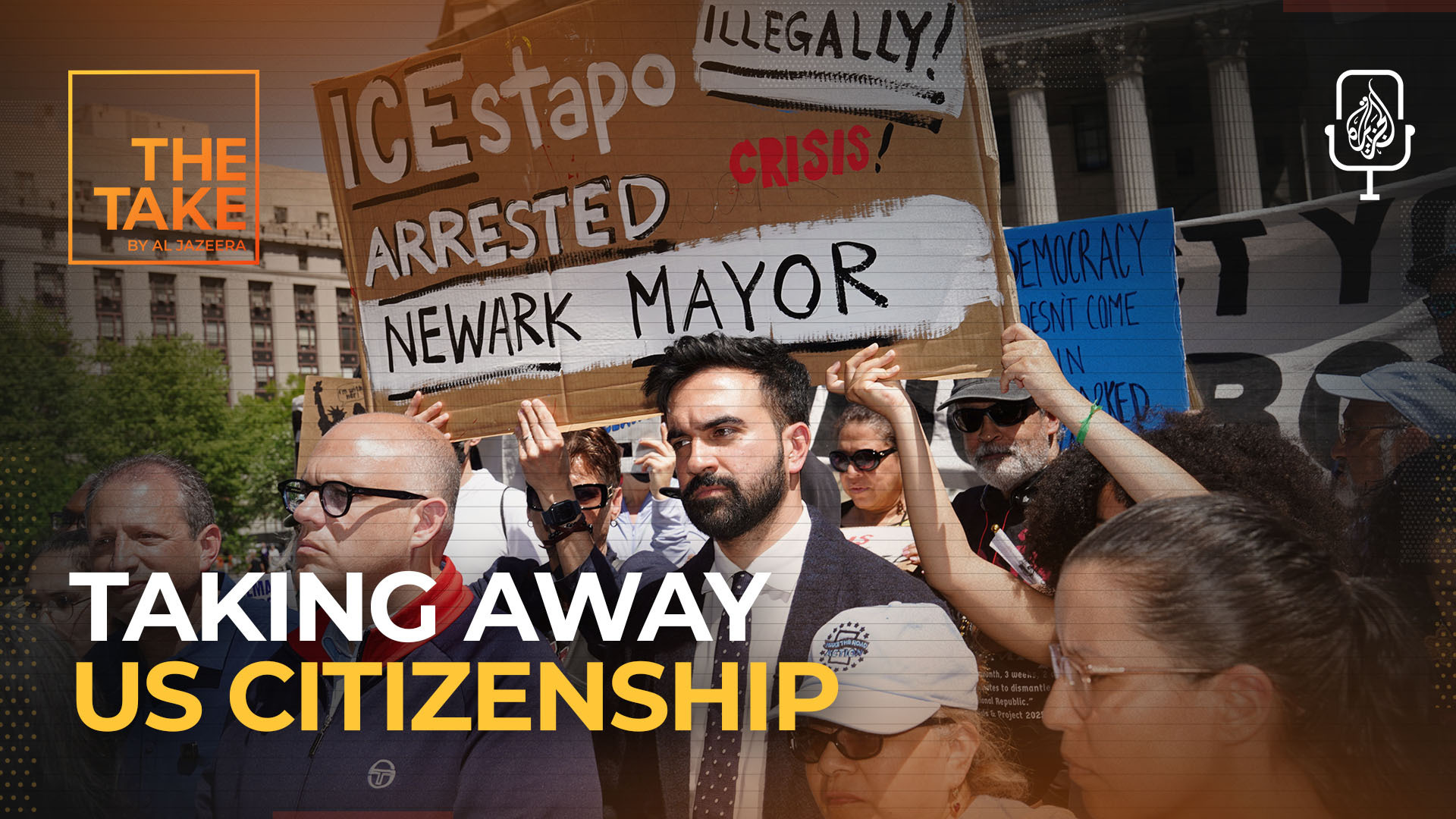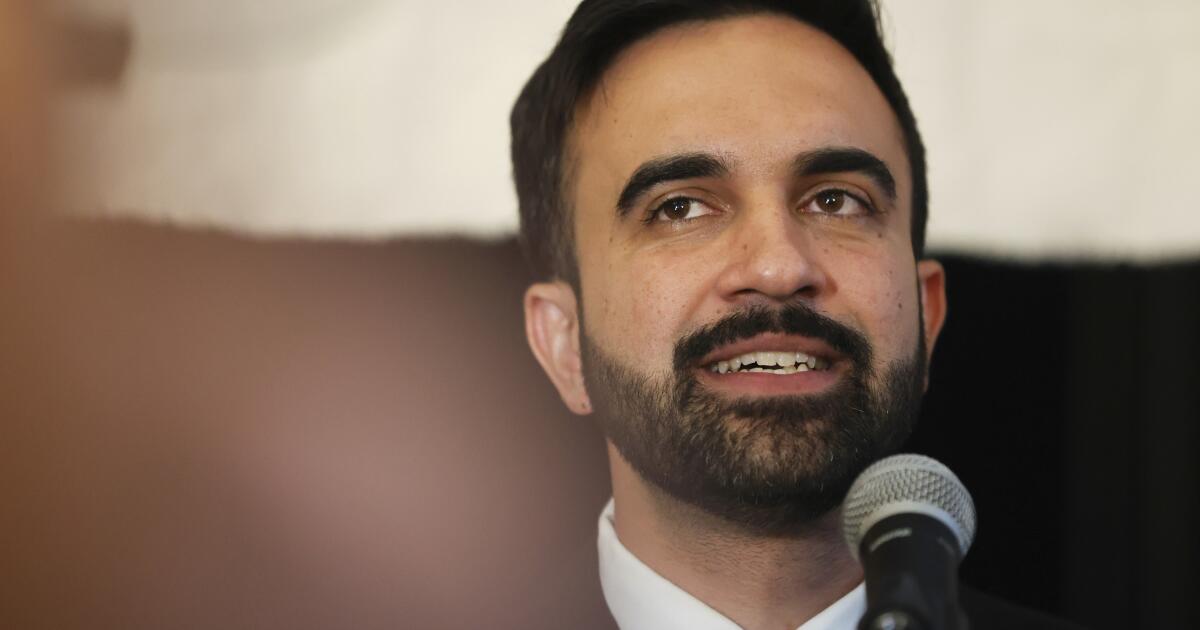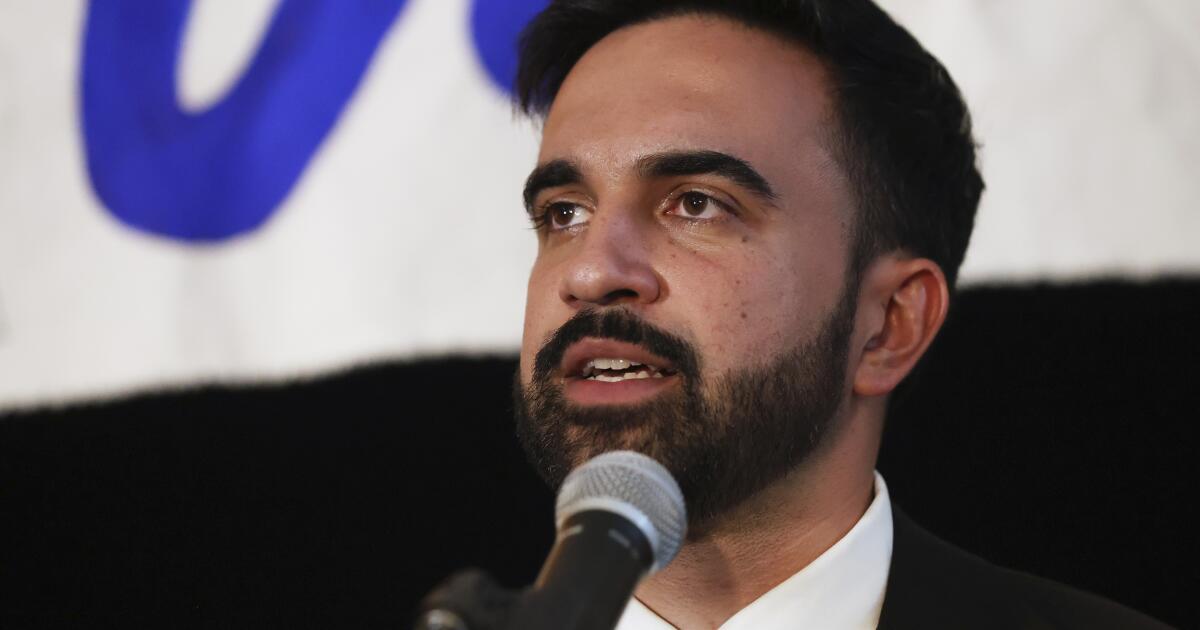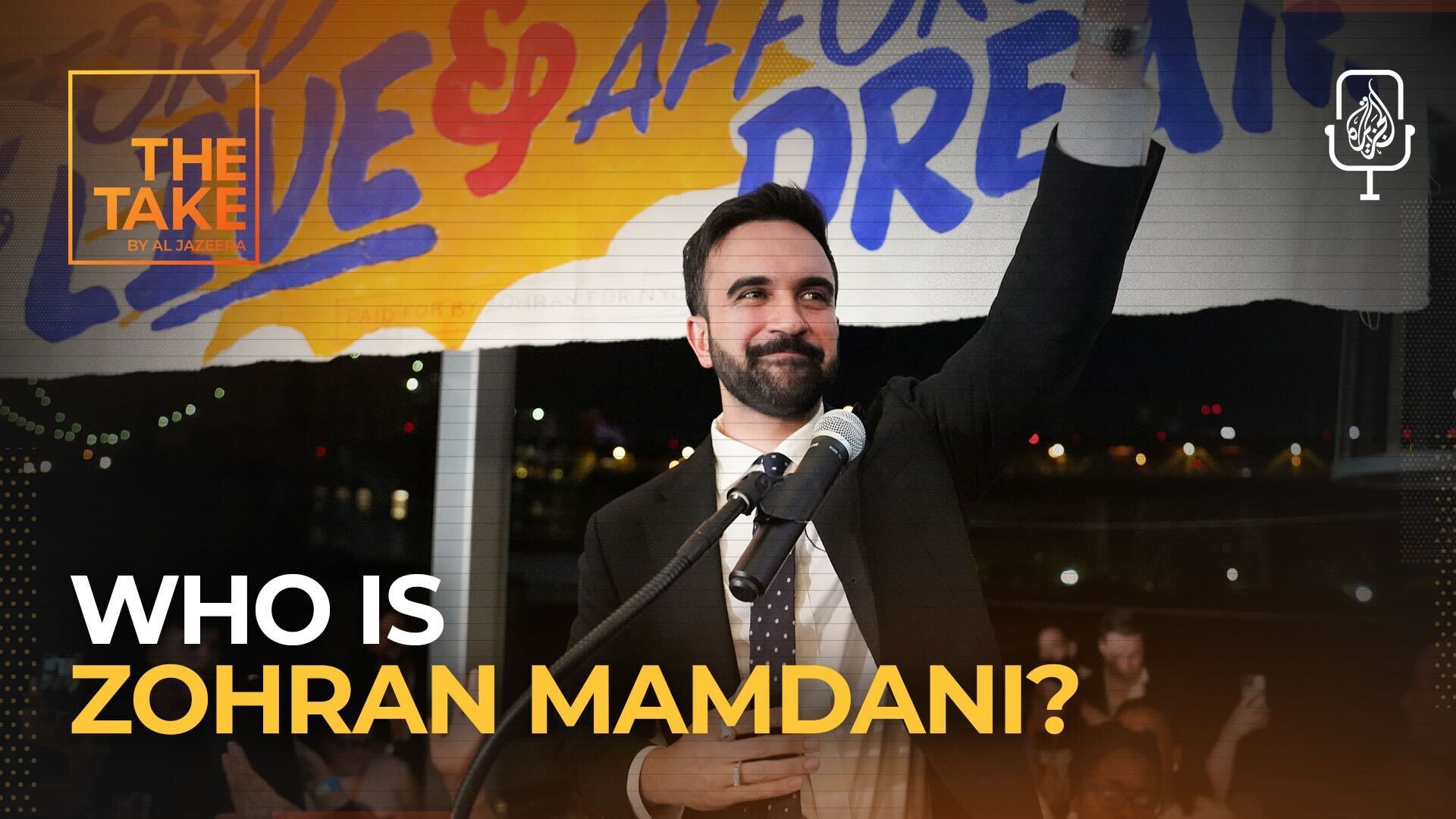Zohran Mamdani campaigned for the Democratic nomination for New York mayor on the promise that he would make the largest city in the United States an affordable one.
The 33-year-old Democratic socialist proposed plans that would transform the city – including a free bus programme and freezing rent increases on rent-stabilised apartments – paid for by a heightened income tax for millionaires and an increase in the corporate tax rate.
Those promises catapulted him to ultimately win the mayoral primary 12 points ahead of his next closest competitor, Andrew Cuomo, who had been endorsed by the likes of former President Bill Clinton.
McKayla Lankau, a 25-year-old tech worker, had canvassed for Mamdani’s campaign. She lives in Bushwick, a Brooklyn neighbourhood which Mamdani won by a 79-point margin, and said housing was among the many economic policies that emboldened her to vote for Mamdani.
“I believe that if people are living a better life in a more affordable community, we all will, and Zohran’s campaign fulfilled that from my perspective,” said Lankau.
As the cost of living rises and US President Donald Trump continues a rightward march as he shapes political discourse, many voters feel Democratic leaders have offered little more than symbolic gestures and strongly worded statements.
Mamdani, a three-term state assembly member, presented something different– a campaign centred around grassroots organising over big donors, detailed policies over vague slogans, and the kind of charisma and gravitas that defined other change candidates like Barack Obama’s successful presidential bid in 2008 or Alexandria Ocasio-Cortez’s surprise win of the House of Representatives in 2018.
Affordability was central to Mamdani’s message – and it resonated. But Mamdani also faces another side of New York – the ultra-wealthy investor class. They are the ones who have made New York City known as the epicentre of global finance and commerce. They are a powerful force to be reckoned with, and they are not happy.
“They are mad that they lost, and they’re used to getting their way. They’re used to setting the rules…. Mamdani ran a transparent, clear campaign and New Yorkers showed up in droves to support it,” political strategist Adin Lenchner of Carroll Street Campaigns told Al Jazeera.
Some investors and lenders are threatening to pull out of deals amid fears of new taxes and regulations. Michael Comparato, a managing director at Benefit Street Partners, said he walked away from a $300m hotel investment in New York. “The financial capital of the world could be in the hands of a socialist. Hard to fathom,” he posted on LinkedIn. Comparato did not respond to requests for comment.
While Democratic socialism – an ideology that believes in shifting power from corporations to workers within the framework of a capitalist democracy – is different from socialism, that sentiment echoed across the city’s financial power players.
Hedge fund manager Bill Ackman said he was “gravely concerned” about Mamdani’s rise, warning that the city would become “economically unviable”. He pledged to support a more “centrist” candidate. Pershing Square, his firm, declined to comment.
“The fear isn’t about economics, I think it’s about power,” Lenchner said. “That doesn’t mean the policy is unsound. I think affordability is economic growth.”
Mamdani’s funding proposals are ambitious but not unprecedented. He would raise the city’s corporate tax rate to 11.5 percent – matching New Jersey next door – up from the current corporate tax rate of up to 7.25 percent. Fortune 500 firms like Johnson & Johnson and Prudential Financial base their headquarters in New Jersey despite its higher rate. Mamdani’s campaign estimates this would generate $5bn annually.
Historically, higher rates haven’t driven business away. In the late 1990s, private sector employment grew at an annualised pace of 2.6 percent, while wages and private sector salaries increased by 9.6 percent.
“I think there’s a lot of exaggeration here on the part of the wealthy investor class on how much this is going to economically harm New York,” Daniel Wortel-London, professor of history at Bard College and author of The Menace of Prosperity: New York City and the Struggle for Economic Development, told Al Jazeera.
Mamdani also proposes a new tax of an additional 2 percent on individuals earning more than $1m. That is projected to raise another $4bn annually. Today, earners who make $1m already pay a combined federal, state and local tax burden of about 46 percent (37 percent of that is the federal income tax set by the federal government).
Currently, the marginal local rate for someone making $40,000 (3.82 percent) is nearly identical to a millionaire’s (3.88 percent), due to New York City’s flat local tax structure for anyone making more than $50,000 annually.
Still, Mamdani can’t unilaterally change tax policy. Any adjustments would require approval from Governor Kathy Hochul. Wortel-London says that shared priorities between Mamdani and Hochul – such as expanding childcare – could create opportunities for collaboration, including on free bus service proposals that would also need state buy-in.
The state already raised personal income taxes on millionaires in 2021 under then-Governor Cuomo, pushing rates to 46 percent (when state, local and federal income taxes are combined), the highest in the country.
Anthony Scaramucci, founder of SkyBridge Capital and a former Trump White House communications director, warned in a podcast with journalist Katty Kay that Mamdani’s platform could accelerate the migration of wealthy residents to states like Florida. Scaramucci did not reply to a request for comment.
To an extent that is true, according to the Citizen Budget Commission, a New York-based nonpartisan think tank. Because of the millionaire migration, the city missed out on $2bn of tax revenue that ended up going elsewhere.
As per the data, the net negative migration for the highest income earners was highest in 2020 and 2021 – when the COVID-19 pandemic was at its peak and could have been a major contributing factor behind the move, as was the case all over the country with people moving out of cities – and began trending back towards historical rates in 2022.
With the exception of that period, high-income earners did not leave at a significantly higher rate before or after.
However, just because millionaires are moving out doesn’t mean that new ones aren’t moving in. According to a Henley & Partners report, New York has gained more new millionaires than any other city in the world – up 45 percent from 2014 to 2024.
“Most high earners really don’t relocate just to avoid taxes. They certainly don’t really relocate across the country. Most high-earners are staying in the city for prestige or their family or a culture. I think there have been scares before. We’ve seen it when [former Mayor] Bill de Blasio got in. They were also worried about tax hikes, and they didn’t leave in droves,” Wortel-London said.
Rather than courting the ultra-wealthy, Mamdani’s economic pitch is aimed at small businesses, which employ the majority of New Yorkers. He plans to appoint a “Mom-and-Pop Tsar” to cut red tape, streamline permits, reduce fees and fines (including not charging first-time offenders), and increase funding for small business support agencies by 500 percent. His platform promises to cut business fees in half.
How realistic are the plans?
Nowhere is Mamdani’s message more resonant than in housing. As rents skyrocket, nearly half of New Yorkers say they’ve considered leaving the city, according to the think tank, the 5boro Institute.
His campaign promised to freeze rent increases on rent-stabilised units, which account for about 28 percent of New York’s housing stock, which is important to voters like Lankau, who currently lives in one. These are typically buildings built before 1974 with six or more units. While some newer buildings opt in, they do so in exchange for tax breaks.
Under the current law, rent increases are approved annually by the city’s Rent Guidelines Board, an independent panel appointed by the mayor. Mayor Eric Adams, the incumbent, approved a combined 9 percent hike in his first three years in office, followed by another 4.5 percent earlier this month. If elected, Mamdani would appoint new members to this board and seek to reverse course.
But the proposal has drawn criticism. The New York Apartment Association (NYAA) – a pro-landlord group that backed Cuomo – says a freeze could worsen the city’s housing shortage. Landlords, they argue, may choose to leave apartments vacant rather than perform costly repairs that can’t be recouped through rent increases due to a 2019 law. As a result, tens of thousands of rent-stabilised units are currently vacant.
“Freezing rents will just accelerate the distress and physical decline of these buildings,” NYAA CEO Kenny Burgos told Al Jazeera.
Mamdani’s platform doesn’t currently include a proposal to address these vacancies or to cap rent increases on market-rate apartments directly.
But to elevate pressure on the housing market, which does indirectly impact the cost of market-rate apartments, the campaign has proposed building 200,000 new affordable units over 10 years – tripling the city’s current pace. His housing plan also includes overhauling zoning laws, eliminating parking minimums, and supporting mixed-use development.
“I think those two, hand in hand, [freezes on rent-stabilised units and plans to build more housing] would be the kind of holistic programme that would make New York more affordable,” Lenchner said.
It remains unclear whether Mamdani would adopt policies proposed by Brad Lander, the third-place primary finisher who endorsed him. Lander had proposed converting some city-owned golf courses into housing. Lander did not respond to a request for comment.
Mamdani also wants to raise the city’s minimum wage to $30 per hour by 2030 – up from $16.50. A Cornell University study estimates a true living wage in New York would be $28.54, meaning Mamdani’s proposal would exceed that. It would also tie future increases to inflation and productivity metrics.
Even so, the gap between “living” and “comfortable” is wide. A SmartAsset study found that a New Yorker would need to earn $66 per hour to live comfortably. Mamdani hopes to relieve some of that pressure through policies like universal childcare, free bus service and a public grocery store option.
The city-run grocery store plan would start with one location in each borough to address food deserts. Much similar to city-owned hospitals or public housing, it would not replace the private sector but augment it. Regardless, this proposal has sparked backlash from John Catsimatidis, the Republican megadonor and owner of Gristedes, a local grocery store chain. He threatened to close his stores if Mamdani wins.
Catsimatidis, who donated over $500,000 to Republicans this year, according to Federal Election Commission records, did not respond to a request for comment.
Grocery costs remain politically sensitive. The latest Consumer Price Index shows grocery prices are up 2.4 percent over last year.
Mamdani also wants to make city buses permanently free. He championed a successful pilot programme in the State Assembly, which boosted weekday ridership by 30 percent and weekend ridership by 38 percent. Making that permanent would require cooperation from state leaders and the Metropolitan Transportation Authority (MTA), which is state-run, and might require some concessions on his part.
“The kind of momentum and energy behind this campaign makes a powerful case in arguing before Albany to make those kinds of investments, giving him that kind of public mandate to pressure state lawmakers to move this kind of proposal forward,” Lenchner said.
This, however, comes as the MTA is under additional pressure from the federal government. The US Department of Transportation recently threatened to withhold funding over New York’s congestion pricing plan, a toll on cars entering parts of Manhattan during peak hours, designed to fund transit improvements.
The political calculus
Like any mayor, Mamdani wouldn’t govern in a vacuum. He’d have to navigate complex City Council dynamics, work with borough presidents and contend with powerful interest groups.
Democrats have struggled across the country because they have such a broad coalition, suggesting little conviction on policy positions which has turned off their base. Even if Mamdani’s proposals are seen as more “radical”, he enters negotiations with a clear starting point and non-negotiables – something Republicans mastered a decade ago when they embraced it and Democrats still have not figured out, Lenchner suggested.
“It’s hard to think in recent memory of a campaign that spoke with such clarity about its objectives, about its convictions, about its moral clarity, and about its practical policy objectives,” Lenchner added.
To win in November, he’ll need to expand his coalition, particularly among Jewish and Black voters where he underperformed.
In a city still defined by finance, Mamdani will also have to show he can hold Wall Street accountable without alienating it. His campaign appears to be trying. The Partnership for New York City – a business group representing more than 300 top firms – hosted a meeting between Mamdani and executives, at the campaign’s request, which according to reporting from the outlet The City, went well and attendees left feeling that he was “willing to listen” and “find solutions to the city’s challenges that will work for all” but they were sceptical if he was genuine.
Mamdani’s campaign did not respond to a request for comment.
